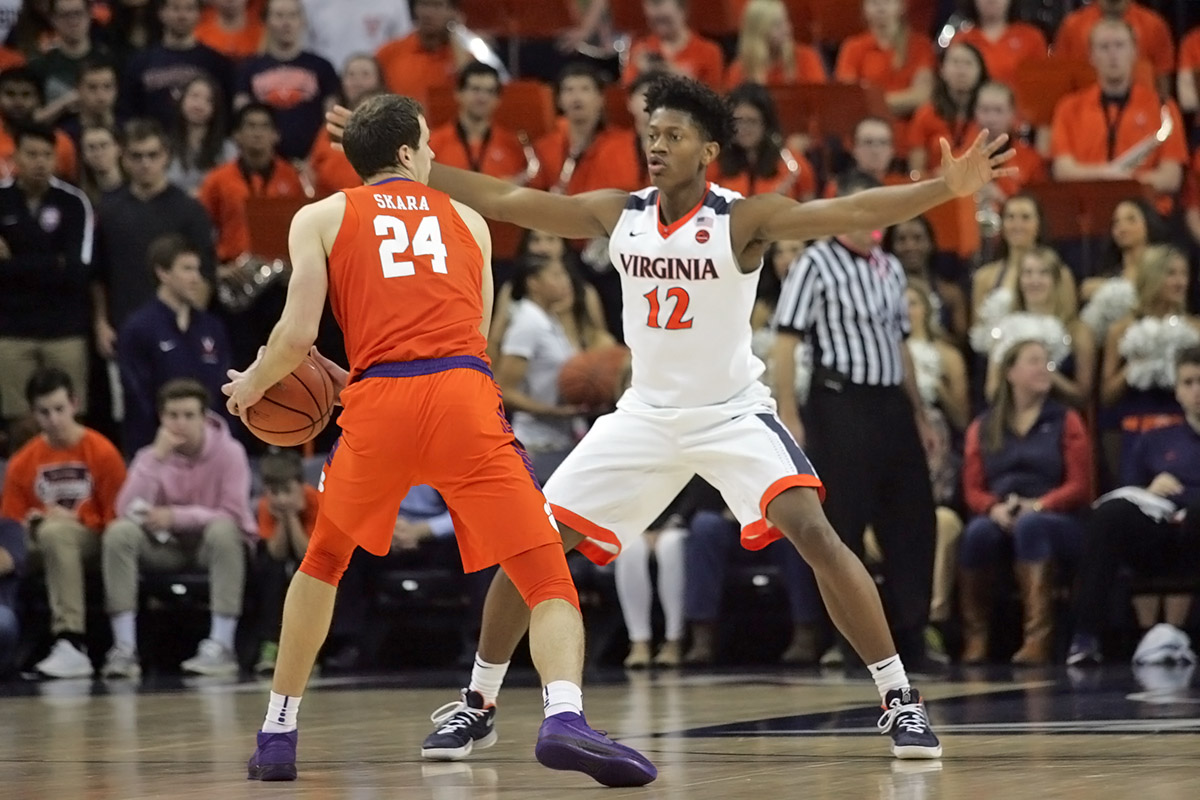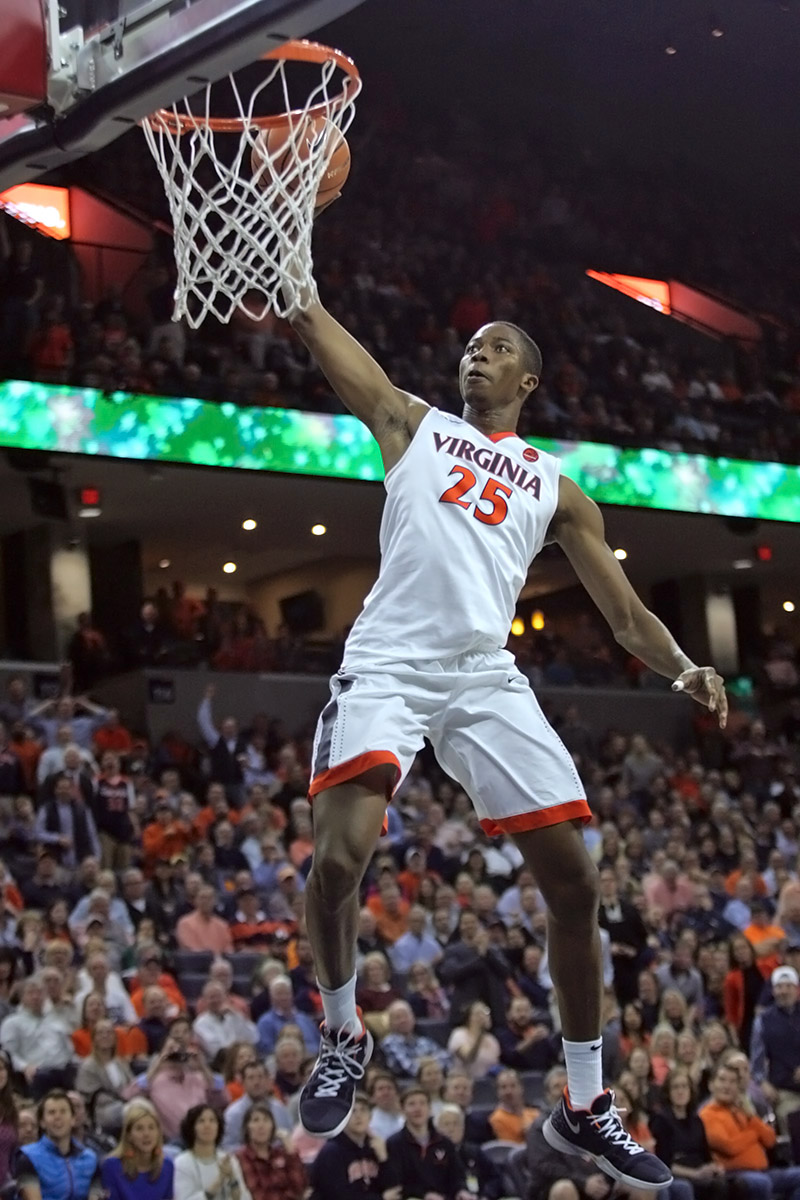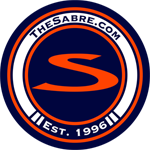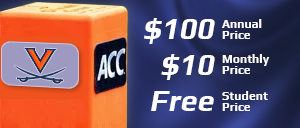
CHARLOTTE – The Virginia basketball program has reached many milestones over the last five years under coach Tony Bennett. This season’s team added a couple of new ones to the growing list.
The Hoos set a new school record with 31 wins and earned a spot in the NCAA Tournament for the fifth straight year for the first time in program history as well. They’re also entering the Big Dance for the first time as the nation’s No. 1 ranked team and the tourney’s No. 1 overall seed. The Cavaliers open with No. 16 seed UMBC on Friday night at 9:20 p.m. at the Spectrum Center in Charlotte.
“I think it’s a cool to play them just because they’re the number one seed overall,” UMBC’s Joe Sherburne said. “I think that’s really cool.”
UVA, meanwhile, isn’t feeling any added significance from the number next to its name.
“I mean, I think all the unnecessary pressure, you guys make those [storylines],” Cavalier captain Devon Hall said. “We just try to get better every single day. Coach preaches that. Not really worried about the pressures or the target on our back. We know every team is going to come after us. We have to be ready.”
Missing Piece
The Hoos will need to be ready without one of their main rotation players, though. Virginia announced Tuesday that De’Andre Hunter, the ACC Sixth Man of the Year, would miss the NCAA Tournament with a broken left wrist. Hunter averaged 9.2 points and 3.5 rebounds in 19.9 minutes this season.
The redshirt freshman forward injured the wrist during the ACC Tournament Semifinals against Clemson. He fell hard to the floor after getting fouled on a drive to the basket. An initial X-Ray didn’t show the fracture. He finished the game with the Tigers and ended up playing 18 minutes against North Carolina in the title game. He even helped put that one in the win column with free throws down the stretch.
When the Hoos returned to Charlottesville, however, the wrist still bothered Hunter. A follow-up MRI showed a small fracture. That’s when the decision came to shut him down for the tournament.
“A real slight, slight crack but on his left, and your job as the coach certainly and with these young men is to protect them,” Virginia coach Tony Bennett said. “And he has such a nice future and I think De’Andre would have tried to play, but long-term that’s not the wise thing. It’s to get this taken care of and do it the right way and give him the best chance for a full recovery, which is certainly what we expect.”
The loss of Hunter will force the team to have an alternative plan for the NCAA Tournament. That could mean more minutes for starters, moving Hall to the forward line in a four-guard lineup, extra minutes for Nigel Johnson or Marco Anthony, or staying more traditional with added time for Mamadi Diakite or Jay Huff. Anthony told reporters that he moved off the scout team for some work with Hall in the post, for example.
Bennett said that match-ups, game situations, and the like would dictate the options as always. The main thing is for those players is to be ready to try to seize the opportunity if it comes to them.
“I think the game will dictate that and obviously I was really discouraged for De’Andre and for us,” Bennett said. “He had a heck of a year. I thought he really developed and, you know, helped us so much with his versatility, offensively and defensively. We talked a lot about that. But that’s – you can’t control the timing. Those things happen. I think there’s enough in that room, and of course as the old saying goes, next man up, you step up and guys like Marco have to be ready. And just depending on how the game goes, you see how it goes but it was – yeah, an unfortunate thing and he seems to be handling it well and I think the guys, everybody wanted him to be part of this. But we’re glad he’s here and we’re going to have to fight like crazy to keep going.”
The players have turned the page and are focused on the games at hand.
“We knew that he was playing hurt, guys knew that he was struggling a little bit even before that game,” UVA senior captain Isaiah Wilkins said. “So it was a game-time decision for him. And he decided to play and it was huge, but it hurts and we’re sad for him. I like for him to be able to play. But, at the same time, nobody – like nobody else [on the other teams] is going to care that he’s hurt. At this point you got to step up, next man up and be ready to play. Feel bad for him, but we got ball to play.”
 AskLandis is a presenting sponsor of TheSabre.com’s postseason coverage this season! From downsizing and decluttering to staging and moving and storage, they do it all to help you take back your home. Give AskLandis a shot at your business for helping support our coverage of the Hoos.
AskLandis is a presenting sponsor of TheSabre.com’s postseason coverage this season! From downsizing and decluttering to staging and moving and storage, they do it all to help you take back your home. Give AskLandis a shot at your business for helping support our coverage of the Hoos.
 Virginia Business Systems is a presenting sponsor of TheSabre.com’s postseason coverage this season! VBS has been in the document technology business since 1954 and provides “Fast Forward Document Solutions” throughout Virginia to large and small companies.
Virginia Business Systems is a presenting sponsor of TheSabre.com’s postseason coverage this season! VBS has been in the document technology business since 1954 and provides “Fast Forward Document Solutions” throughout Virginia to large and small companies.
Defensive Players Of The Year
Wilkins, of course, missed the second game of the NCAA Tournament last season against Florida as he dealt with an ongoing illness. So he gets a chance to play healthy in the tournament again for the first time since his sophomore season when the team made a run to the Elite Eight.
Wilkins enters his final dance as the ACC Defensive Player of the Year. He posted 207 rebounds, 49 blocked shots, and 39 steals through the first 33 games. Those 49 blocked shots have tied Chris Alexander’s 1994-95 performance for the seventh-best season in UVA history and set a new career-high as well. Wilkins is up to 141 career blocked shots, which is just seven short of tying Alexander for second all-tie behind Ralph Sampson’s incomparable 462 career blocks.
The Cavalier senior received the top defensive honor in part because of his help defense. In Virginia’s help-heavy Pack-Line scheme, Wilkins is seen as an everywhere at all times eraser that helps make the the overall product as good as it is. He’ll have company on the floor Friday, though.
That’s because UMBC’s K.J. Maura earned the America East Defensive Player of the Year Award in his league. He ranked 29th nationally in steals per game (2.0) and helped the Retrievers improve their defense by nearly 13 points this season in league play, down from 79.1 to 66.7 at the end of the regular season.
Maura, a 5’8” guard, drew attention from his teammates as a daunting on-ball defender in a scheme that’s more multiple and pressure-heavy than the Hoos.
“He’s annoying. He’s always in you. He makes you work for everything,” UMBC guard Jairus Lyles said. “Even if you can – the height advantage we have, we can see over him. He’s still up in you. It’s making you uncomfortable whatever you do, wherever you go. He’s always there, never not on you. That’s kind of annoying when you’re dribbling the ball and trying to get your shot off.”
“I can agree with that,” teammate Jourdan Grant said. “Going against this guy everyday in practice has been a blessing and a curse because he’s annoying, as Jairus said. But like he said, just being on his hip and ball pressure really gets to people sometimes.”

Thinking In English
One thing Virginia players must get used to during the postseason tournaments is the open locker room media sessions. UVA’s locker rooms are not open after games in the regular season. For sophomore Mamadi Diakite, that’s a much easier process than when he first arrived in the United States.
Diakite played two seasons at the Blue Ridge School outside of Charlottesville and, at the time, understanding the questions being asked in English was a challenge. He moved to the U.S. from Guinea in Africa and spoke French as his main language. As he said in this UVA Today article about his relationship with former Hoo player Mamadi Diane, he could handle basic English like “I’m hungry” but he was still learning the language overall.
“Very intimidating,” Diakite said. “I was just trying to get my mind right and get the words right out of my mouth and it wasn’t coming the right way. Right now, it’s still not coming the way I want it but at least I can communicate and my language is getting better.”
The process is getting less difficult for Diakite the longer he’s in America. At first, he spent a lot of time thinking and translating in French in order to try to say what he wanted in English. That can be an exhausting process to even have a short conversation, much less conduct an interview. Diakite said Thursday that it felt like his head was hurting sometimes because of all the steps to get the words out.
Through experience, time in class, and the people around him that’s getting easier. That’s true in part because he’s no longer going through the translation in his head.
“Now I started thinking in English,” Diakite said. “That was the biggest challenge to me I think earlier. I was thinking in French and then translating to get it out in English. Lately, I’ve been able to think in English and process everything in English because of how many classes I’m taking and I have to get the homework done and present in front of people so that’s something that’s helped me a lot.”
Pointer Pups & Ball Boys
Both coaches shared stories of being a coach’s son Thursday. Virginia’s Tony Bennett grew up with his father at University Wisconsin-Stevens Point, while UMBC’s Ryan Odom was a ball boy at UVA when his father was an assistant. In fact, Odom said he was sitting at the basket in U-Hall when Ralph Sampson completed his career in the building.
“Going back to Charlottesville in the early days, I was on the basket,” Odom said. “I was sitting on the basket when Ralph was shooting his last free throw and the ball bounced off, I think, and he gets the rebound and puts it back in. That was the last shot he made, I think in U Hall. So, that’s where I started. … I would rebound with our players prior to the game, sometimes go in the other end and passing it back to MJ on occasion when they were in town. Just – it’s some amazing memories. Just very, very fortunate.”
Bennett recalled his days when his dad was coaching Terry Porter and current Cavalier assistant Brad Soderberg.
“I was what they called a ‘pointer pup.’ We’d go in at halftime and get to do … a little ball handling routine, Pete Maravich, the ball in a circle.” Bennett said. “The pointer pups would go out there at halftime, right leg, left leg, dribble it high and low at halftime in front of the crowd. Kind of that. And a lot of times I sit right behind the bench and did some things for my dad’s team.”



